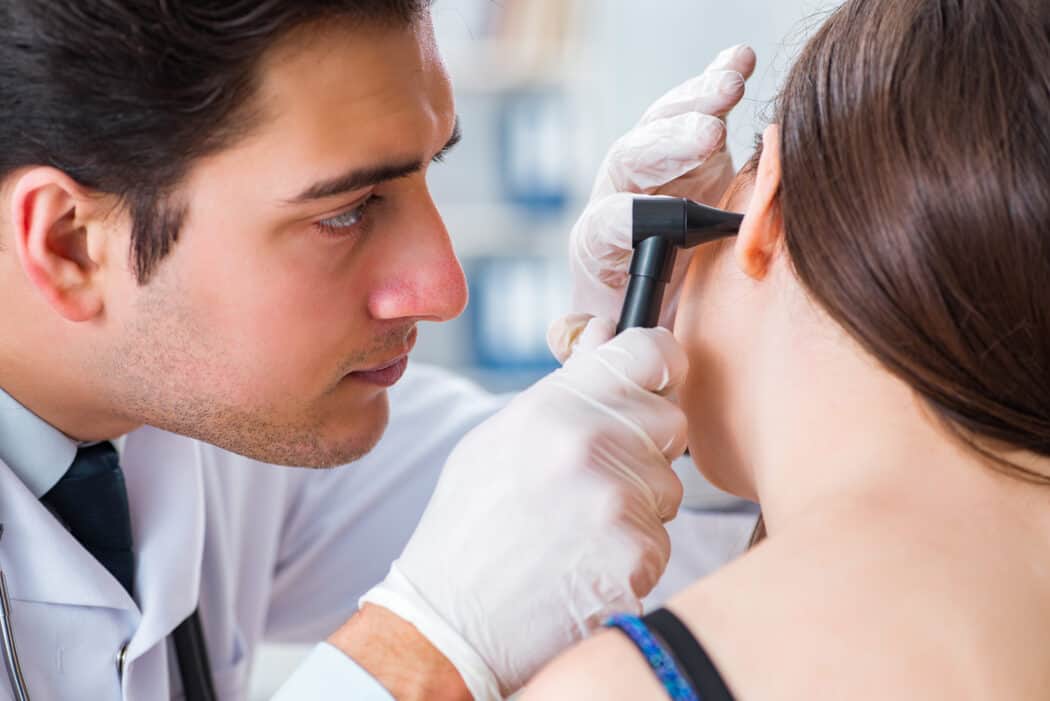Did you know that people with diabetes can be more than twice as likely to experience hearing loss? If you have diabetes or are prediabtic, American Diabetes Month is a great reminder to prioritize your health. Schedule a hearing test this November and learn more about how you can protect your hearing health.
Scope of Diabetes
Diabetes is a common medical condition that people live with today. According to the Centers for Disease Control and Prevention (CDC):
- 38 million people have diabetes in the United States.
- 1.5 million people are diagnosed with diabetes annually.
- 1 in 5 people who have diabetes don’t know they have it.
- Over a third of adults (96 million) are prediabetic and 8 out of 10 don’t know they are.
These figures highlight how pervasive diabetes is. Diabetes can affect health in significant ways including contributing to the development of hearing loss.
Link Between Diabetes & Hearing Loss
Research shows that there is a significant correlation between diabetes and hearing loss. A major study that examines this link was conducted by researchers at the National Institutes of Health. This study involved 11,405 participants with and without diabetes who had their hearing and diabetes assessed. Researchers found that among adults with diabetes:
- 21% experienced a mild or greater hearing loss of low or mid-frequency sounds compared to 9% of adults without diabetes.
- 54% experienced a mild or greater hearing loss of high-frequency sounds compared to 32% of adults without diabetes.
- Adults with prediabetes had a 30% higher rate of hearing loss
This data shows that people with diabetes are much more likely to experience hearing loss compared to those without diabetes. These findings support further research that identifies diabetes as a risk factor for hearing loss.
Impact of Diabetes on Hearing Health
Kidney and heart issues are common complications associated with diabetes. But less recognized is hearing loss which diabetes can contribute to. Though further research is needed to identify how exactly diabetes can cause hearing loss, there are a few suggestions. It is well known that diabetes can damage blood vessels. Diabetes is associated with excess blood sugar levels due to lack of insulin production or inefficient use of insulin. This results in high blood sugar levels which can damage blood vessels and nerves in the body including the inner ear which is where soundwaves are processed.
Damaged blood vessels can weaken or impair the sensory cells in the inner ear. There are thousands of sensory cells in the cochlea which play a critical role in how sound is processed. These cells convert incoming soundwaves into electrical signals which get carried to the brain. The brain continues processing these signals which includes assigning meaning to them, allowing us to understand what we hear. Weakened sensory cells prevent them from carrying out their essential functions, resulting in the brain receiving less auditory information. This can lead to chronic hearing loss, reducing a person’s capacity to hear and process speech as well as sound.
Tips to Protect Hearing Health
Fortunately, there are effective ways you can care for both diabetes and hearing health. Practicing safety measures can reduce your risk of developing hearing loss. Tips you can integrate into everyday life include:
- Prioritize care for diabetes: taking care of your diabetes is key to also protecting your hearing health. This includes knowing target levels for blood sugar, cholesterol, and blood pressure. Reaching and not exceeding these levels is important. Also, be sure to take all prescribed medications and follow doctor recommended routines and practices.
- Test hearing annually: hearing tests involve a painless and noninvasive process that measures hearing capacities in both ears. This identifies any hearing loss and the degree of impairment you could be experiencing. Getting your hearing tested every year allows you to monitor your hearing health and treat any symptoms early on.
- Reduce exposure to loud noise: one time or consistent exposure to loud noise is a common cause of hearing loss. Reduce your exposure by maintaining low volume settings on electronic devices, wearing hearing protection (headphones, earplugs), avoiding settings with lots of background noise, and taking listening breaks throughout the day.
Contact us to learn more about ways you can protect your hearing health. This November is also a great reminder to schedule an appointment for a hearing test.

